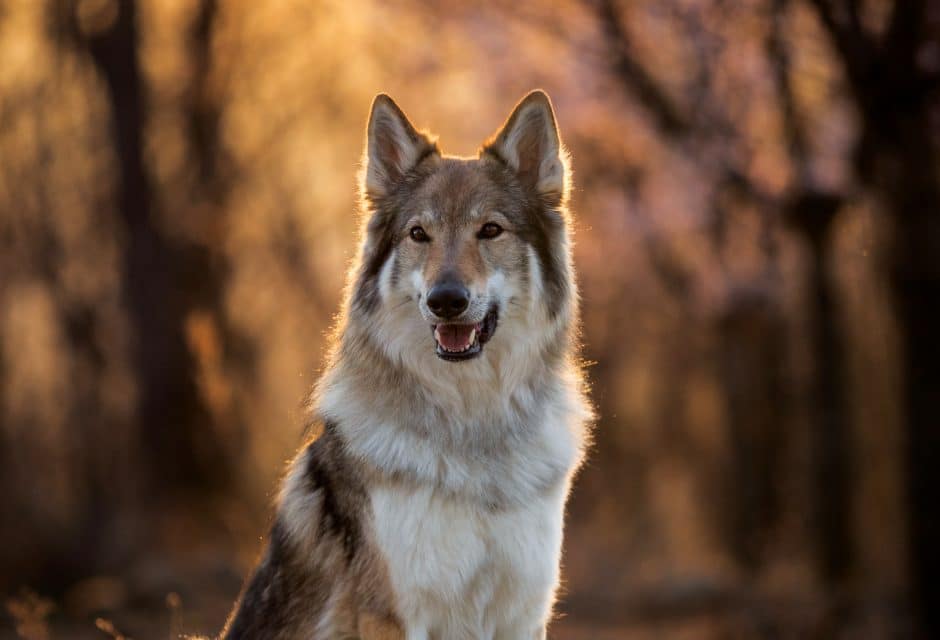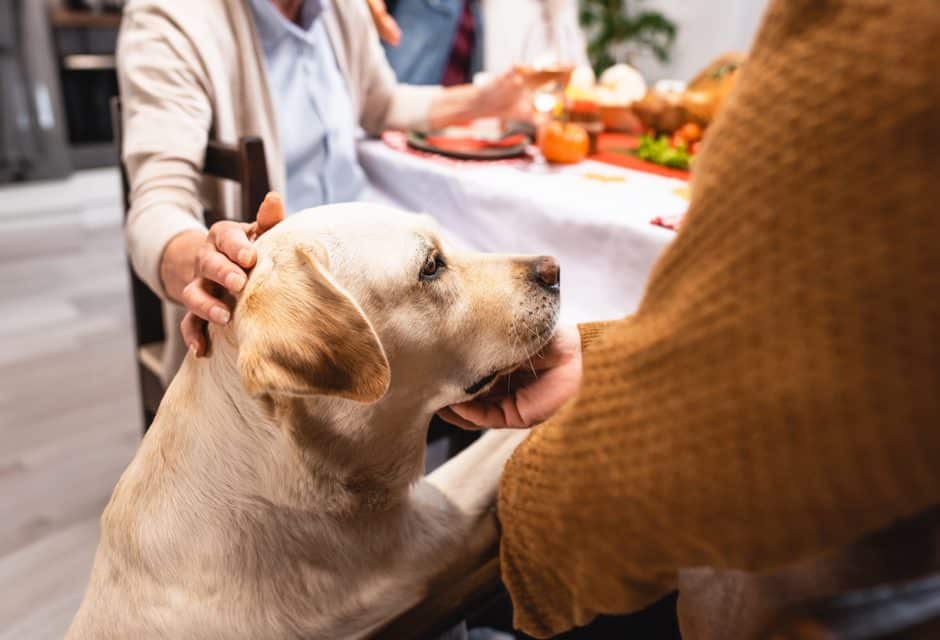

Should You Be Worried About Bird Flu?
Risks, symptoms, and how to protect your cat from contracting bird flu
Concerning headlines about the bird flu, or H5N1, have lead to worry amongst backyard farmers, individuals, and pet parents alike. While the bird flu has historically been found in Africa and Asia, it has more recently spread to Europe, North America, Central and South America, and Antarctica. How big of a threat is bird flu to your cat? Should you be worried? Here’s how to protect your dog and yourself from contracting bird flu.
Wild birds carry the avian flu, which can be spread to other birds, and especially impacts domestic poultry, like chickens and turkeys. Although the bird flu can spread to mammals, it’s not common. Health Canada is currently reporting that the risk to humans is low, assuming that they aren’t in direct contact with birds. But what about dogs? Let’s take a closer look.
What is the Bird Flu?

monticello/Bigstock
The bird flu is a type of infection that is caused by a flu virus, usually influenza A. The strain that vets and other health experts are concerned with now is called H5N1. While wild birds often exhibit no symptoms while carrying the disease, it can spread quickly through domestic birds, including chickens, turkeys, and ducks. Although the risk to humans remains low, there have been some cases of humans contracting the virus. Most of the time, this is due to people coming in direct contact with sick birds, such as farm workers. It is very rare for the bird flu to spread between people.
While dogs can contract bird flu (avian influenza), symptomatic cases in dogs are rare.
Are Pets at Risk of Bird Flu?
Dr. Wailani Sung, a board-certified veterinary behaviourist and Senior Director of Animal Admissions and Wellbeing at Joybound, says, “Yes, pet parents with cats that go outdoors and have the possibility of encountering or eating sick or infected birds or cattle, should take extra preventative measures to keep their feline safe”. She points out that dogs are at a lower risk, but pet parents do need to take precautions so that their dogs don’t come in contact with or eat infected birds or cattle.
Cats are known to be susceptible to the virus, reports the New York Times, and may have passed the virus to their owners.
Currently, the American Veterinary Medical Association (AVMA) is reporting that dozens of cats have contracted the illness. In Canada, there has only been one reported case of a dog contracting the bird flu, after coming into contact with a wild goose. Sadly, the dog passed away after developing clinical symptoms.

CZBlake/Bigstock
Preventing Bird Flu in Cats and Dogs
Limit Exposure
Dr. Nita Vasudevan, a veterinarian, says that “the best way to protect your pets is to limit their exposure to wild birds.” For cats, this might mean keeping them indoors or supervising their time spent outside. A controlled environment, like a catio, is a great way to allow your cat time outside while keeping them safe and secure. If you’re a dog owner, you’ll want to avoid anywhere that your dog might encounter a sick bird, such as ponds and other places where waterfowl gather. For example, you’ll want to avoid letting them off-leash near ponds and other bodies of water. Although both cats and dogs might enjoy watching birds gather at a bird-feeder, you’ll want to ensure that they avoid any direct contact with the feeder.
Feed a Safe Diet
It’s also important to consider your pet’s diet when thinking about preventing the bird flu. Dr. Sung points out that pet parents should avoid feeding their pets undercooked or raw meat diets, including freeze-dried foods that haven’t been cooked.
There have been several reports of cats becoming ill with the bird flu due to consuming raw food. Two cats in Washington state developed bird flu symptoms after eating potentially contaminated raw food. A few brands
of raw cat food have also been recalled due to potential contamination with the bird flu. The FDA is currently recommending that pet parents cook any raw food they are feeding their pets to help reduce the risk of illness. Google for up to date information on any pet food recalls.
You’ll also want to be careful about feeding their pet unpasteurized or raw milk, cheese, or cream, as these can contain potentially harmful bacteria and viruses, including the bird flu. Choosing a commercially available, high-quality kibble is a good option, as these are heated to high temperatures to kill any viruses or bacteria. If you cook for your pet, you’ll want to ensure that any meat or eggs are heated to the proper temperature to kill any pathogens. For example, chicken needs to be heated to 74°C.

dvorak.vero/Bigstock
Prevent the Spread
If you come in contact with infected birds yourself, you’ll want to be especially cautious.“Pet guardians should change their clothes and shoes and thoroughly wash any exposed skin if they have come into contact with sick or dead animals infected with bird flu,” says Dr. Sung.
The same is true if you have chickens. Dr. Vasudevan says, “If you keep backyard chickens, practice strict biosecurity measures—wash your hands, change shoes, and keep pet areas separate from poultry spaces.”
Practice Good Hygiene
While not specific to the bird flu, practicing good hygiene is important to help manage the spread of viruses and bacteria. This includes keeping your pet’s eating area clean, washing their food and water bowls daily, and washing your hands regularly, especially after handling animals or their food. You’ll also want to practice good hand hygiene after handling bird-feeders and being outside. Individuals who work with potentially infected animals, including cats and dogs, should use proper personal protective equipment (PPE) and practice good hygiene.

Valmedia/Bigstock
Monitor Outbreaks
Being informed about outbreaks in your area can help you to make informed decisions for your pets. The Canadian Wildlife Health Cooperative provides a map where you can monitor outbreaks and confirmed cases of the avian flu. If you are in an area that is experiencing an outbreak, you can then take care to avoid local areas where birds gather, such as parks or wetlands. If there is an outbreak in your area and you are concerned about how to keep your pet safe, you can also consult with your veterinarian.
Ensure Vaccines Are Up-to-Date
While there is currently no vaccine for the bird flu, ensuring that your pet’s vaccines are up-to-date can help protect them from similar illnesses. This also helps to keep your pet in good health, which is important when there is a current outbreak.
Symptoms of the Bird Flu in Cats and Dogs
Symptoms of the bird flu in cats and dogs can be initially similar to an upper respiratory infection, including:
- Coughing or sneezing
- Difficulty breathing
- Lethargy
- Fever
- Reduced appetite
- Inflamed eyes
- Vomiting or diarrhea
- Discharge from the nose and eyes
Dr. Vasudevan says that if you notice any of these symptoms in your cats and dogs, especially after they have been in contact with birds, to contact your vet right away as early detection and supportive care can make a major difference in your pet’s wellbeing.
Dr. Sung also points out that your cat or dog may exhibit signs of neurological issues, including:
- Tremors
- Seizures
- Incoordination
- Blindness
If your dog or cat has been diagnosed with the bird flu, you’ll also want to ensure that you monitor your own health, including your temperature.
How is the Bird Flu Treated?
Because the bird flu is a virus, it is treated with supportive care. This means providing your pet with food and water, and supplemental oxygen if needed. If your dog or cat isn’t eating or drinking, then vets may provide them with intravenous fluids or appetite stimulants. If your dog or cat develops a secondary infection to the bird flu, such as pneumonia, then they may be provided with antibiotics.
Can the Bird Flu Spread to Humans?
Dr. Sung says that the probability of humans being infected by bird flu through their pets (and in general) is low, but there have been some confirmed cases. She points out that individuals who are immunocompromised are at the highest risk, and that early detection and reporting are important to help prevent the spread of the bird flu.

New Africa/Bigstock
Prevention is Key
“The risk is still very low for most pets, but awareness and prevention are key,” says Dr. Vasudevan. Individuals who have outdoor cats, dogs who roam in bird-heavy areas, or who have backyard chickens need to be the most aware of practicing good hygiene and helping their pets avoid contact with potentially infected birds.
Join the newsletter and never miss out on dog content again!
"*" indicates required fields
By clicking the arrow, you agree to our web Terms of Use and Privacy & Cookie Policy. Easy unsubscribe links are provided in every email.





